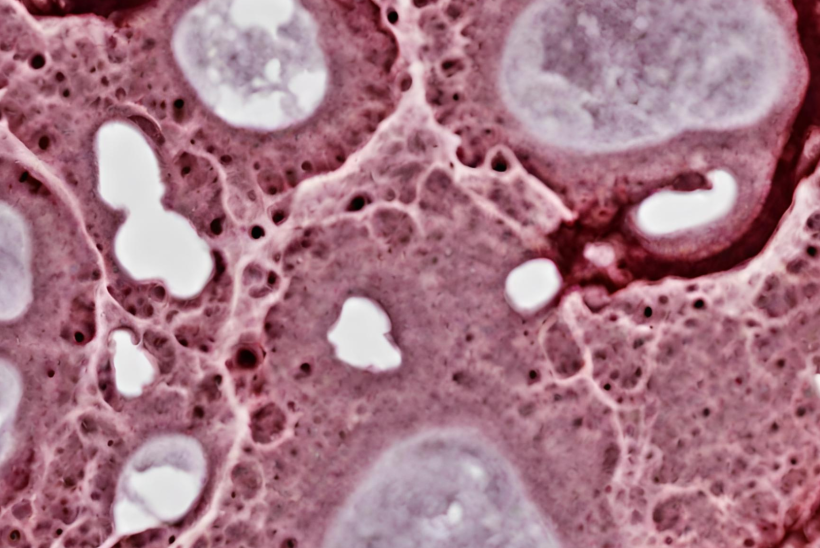Moyamoya Day: Shedding Light on a Rare Paediatric Condition
As we observe Moyamoya Day, we're reminded of the importance of understanding and supporting children affected by Moyamoya disease. At GOSH International and Private Care, we're committed to raising awareness about this rare condition. In this article, we'll explore the basics of Moyamoya disease, itom its diagnosis to treatment and long-term outlook. Join us in spreading awareness and compassion on Moyamoya Day and every day thereafter.
What is Moyamoya disease?
Moyamoya is a rare but important cause of strokes in children. In this condition, the main blood vessels supplying blood to the brain gradually narrow, leading to a shortage of blood carrying oxygen and nutrients. To compensate, the brain forms new blood vessels, which give a characteristic appearance resembling a "puff of smoke" on angiograms—a term derived from Japanese. Over time, the narrowing of blood vessels increases the risk of stroke, varying in severity from minor episodes to life-threatening complications.
Who Gets Moyamoya?
Most cases of Moyamoya seen at GOSH are sporadic, occurring without an apparent cause or genetic inheritance. However, certain conditions like Down syndrome, sickle cell disease, and neurofibromatosis may be associated with Moyamoya. Additionally, Moyamoya can develop after treatment for other diseases, such as brain tumours. While familial occurrence is extremely rare, genetic predispositions are increasingly recognised.
How is Moyamoya Diagnosed?
Diagnosis of Moyamoya often occurs after symptoms manifest, such as transient neurological episodes or completed strokes. With advancements in imaging technology, Moyamoya's characteristic abnormal blood vessels are typically detected on MRI scans. However, a definitive diagnosis and treatment planning necessitate an angiogram—a specialised x-ray test conducted under general anaesthetic at GOSH by our expert neuro-interventional radiologists.
How is Moyamoya Treated?
Treatment of Moyamoya aims to reduce stroke risk and improve blood flow to the brain. Children are often prescribed aspirin to prevent clot formation and encouraged to stay well-hydrated. However, the primary long-term treatment involves surgery, specifically the pial synangiosis—a type of EC-IC (extra-cranial to intra-cranial) bypass. GOSH specialises in performing these surgeries, with a focus on achieving optimal outcomes and reducing stroke risk.
What Can GOSH International & Private Care Offer?
GOSH International & Private Care provides comprehensive multidisciplinary management of Moyamoya disease. Children undergo thorough assessment and treatment planning in joint clinics with paediatric neurologists and neurosurgeons. Surgical decisions are made collaboratively, considering each child's unique needs and circumstances. With extensive experience and expertise, GOSH performs Moyamoya surgeries with a success rate exceeding 90%.
What Does Surgery Entail?
Before surgery, families meet with the surgical team to discuss potential benefits and risks. Surgery is performed under general anaesthesia, with specialised care provided in a high dependency unit post-operatively. Most children recover well after surgery and are discharged within a week. Regular follow-up appointments ensure continued monitoring and support.
What is the Long-Term Outlook?
Following successful treatment, most children with Moyamoya lead healthy, independent lives. Regular MRI surveillance is recommended, with occasional angiograms to assess bypass success. While further surgery may be required in rare cases, the overall prognosis is favourable, with over 90% protection against stroke in the long term.
Is GOSH Involved in Research and Education in Moyamoya?
GOSH is actively engaged in research and education related to Moyamoya disease. Collaborations with leading children's hospitals worldwide support ongoing advancements in clinical care and research. Through participation in international organisations and funding for translational neuroscience research, GOSH remains committed to improving outcomes for children with Moyamoya.
Let us continue to raise awareness and support for children and families affected by this condition. At GOSH, we remain dedicated to providing the highest standard of care and advancing knowledge to improve the lives of those affected by Moyamoya disease.
If you would like to learn more about this disease, join our expert neurosurgeons, Mr. Greg James and Mr. Dulanka Silva, at a virtual seminar on May 10 hosted by the Moyamoya Foundation.
They will discuss advancements in Moyamoya surgery, improving patient care, transitioning from paediatric to adult care, and other topics related to the disease. Register here for the webinar and learn more about Moyamoya.


